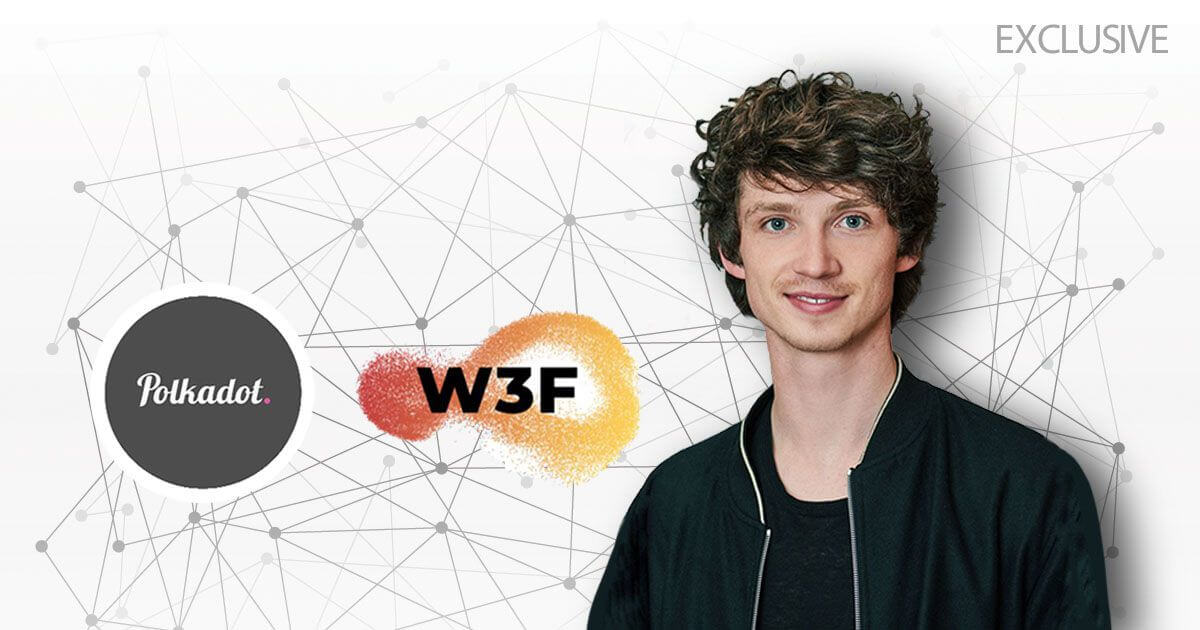Exclusive: Can Web3 Foundation Achieve a Truly Decentralized Web?
Matthew Lam Jul 03, 2019 08:30
Following the technical underpinnings of Polkadot in Part 1, Jack Platts, Head of Collaborations Web3 Foundation reveals their effort towards the goal of decentralized web! He also explained the governance and technical challenges in achieving a decentralized web!

Exclusive interview with Jack Platts: Part 2
Following the technical underpinnings of Polkadot in Part 1, Jack Platts, Head of Collaborations Web3 Foundation reveals their effort towards the goal of the decentralized web! He also explained the governance and technical challenges in achieving a decentralized web!

How Web 3 Foundation can achieve a truly decentralized web?
Web3 Foundation convenes, coordinates, and funds the projects, teams, and individuals that are building the frameworks for a fully functional and user-friendly decentralized web.
All of our research, grants, and events we view through the lens of the Web3 Technology Stack. The development of this inclusive set of interoperable and extensible protocols is the primary measuring stick by which we evaluate our progress. The Web3 Tech Stack guides how we approach research, collaborations, and grants. We’re most interested in funding and providing a platform for the protocols and pieces of the stack that are less monetizable or appealing to companies to tackle. That is where we as a Foundation can step in and act, and if everyone does their piece we will over time build a fully decentralized web together. For example, decentralized and private messaging is a piece of the stack that many applications need because currently, we rely on centralized services to handle our encrypted messaging if it is encrypted at all. So we are working with other teams in the space to research this problem and implement a solution. This type of thing is more difficult to monetize, so it’s great for us as a Foundation to step in and jumpstart the development so that downstream teams can build their own applications using the protocol.
Source: Web3 Foundation
The Web 3 Foundation aims to construct an internet where users are in control of their own data, identity, and destiny. What are the governance challenges in doing so?
Web3 Foundation only provides grants for open-source software. Everything we do we try to do in an open, transparent way. We try to foster that type of culture internally, and we have some work to do to be totally transparent. Some groups in the space do an even better job than us, like Aragon. It is difficult from a governance perspective to push open-source across the industry because there is money involved with some of these protocols and companies. But that is what we stand for: open-source, autonomous software.
What are the technical challenges in achieving syntactic interoperability and semantic interoperability for the internet? How do you overcome these challenges?
From a technical perspective, it is difficult to have perfect interoperability when users need control and privacy. The blockchain is a great truth machine, but not always a great privacy machine. We employ and work with many cryptographers who are trying to solve these challenges so that use cases in health care and banking can also be interoperable. I like the analogy to the early Internet where Intranets ruled and private companies and systems dominated the industry. We’ve now come full circle and that is why Web 3.0 is so important. You have to trust that the private, closed systems are doing the right thing, and we’re building protocols that obviate the need for trust. We like the phrase “Less Trust, More Truth” for what we’re doing.
In the creation of a decentralized web, how do you compare the existing competitor, like Tron (TRX)?
As long as systems and applications are open and transparent about what they are and what they are doing I don’t think there is much competition in the space from one protocol to the next. There are probably too many smart contract platforms at this point, especially since they cannot talk to one another right now, but we mostly think about our competition as closed, proprietary systems that control and provide very little information about what they are doing with your information or how it is stored. Those types of applications are our competition. That is the status quo and we want to tear that down.
Image source: Shutterstock
.jpg)